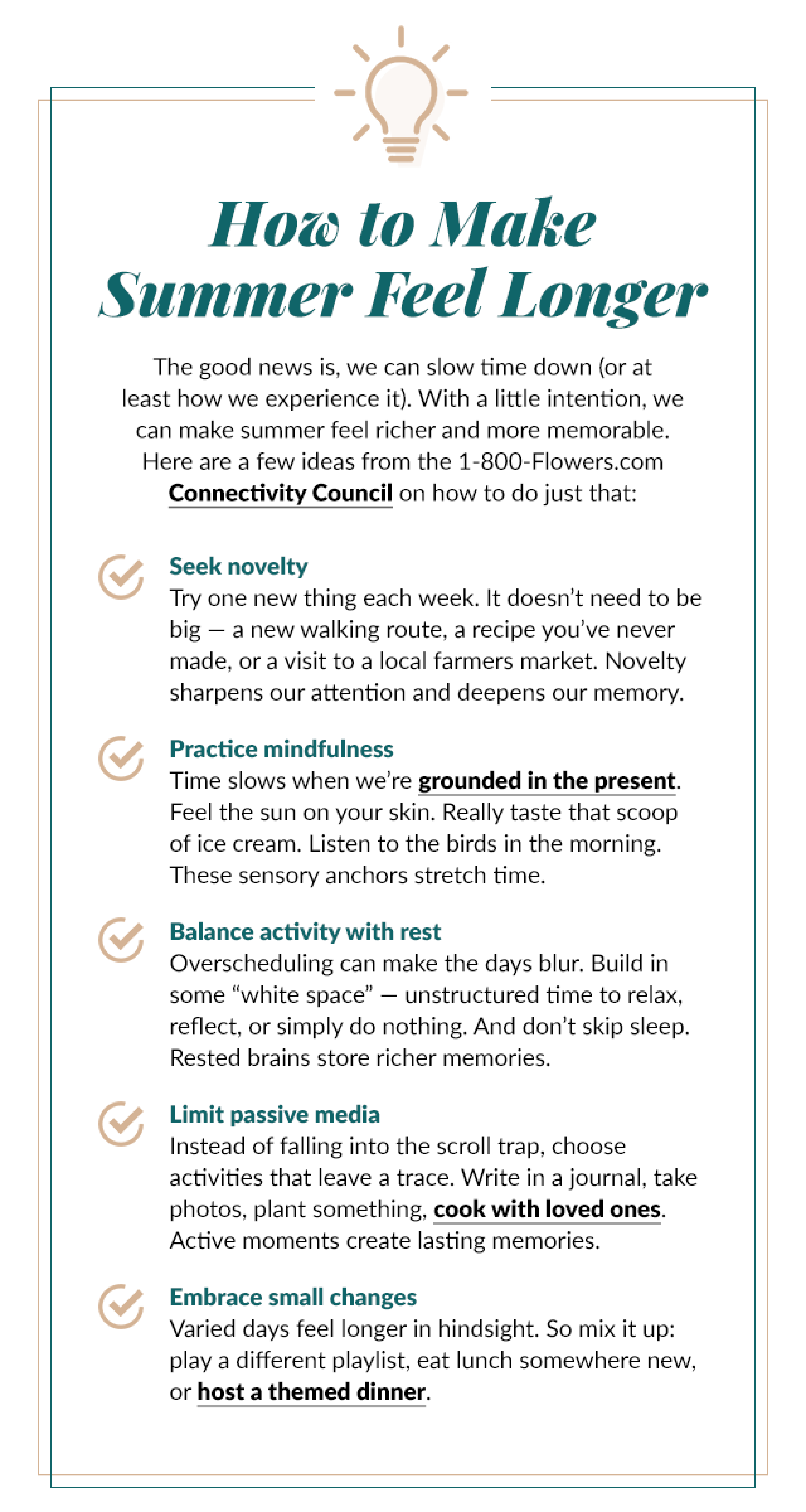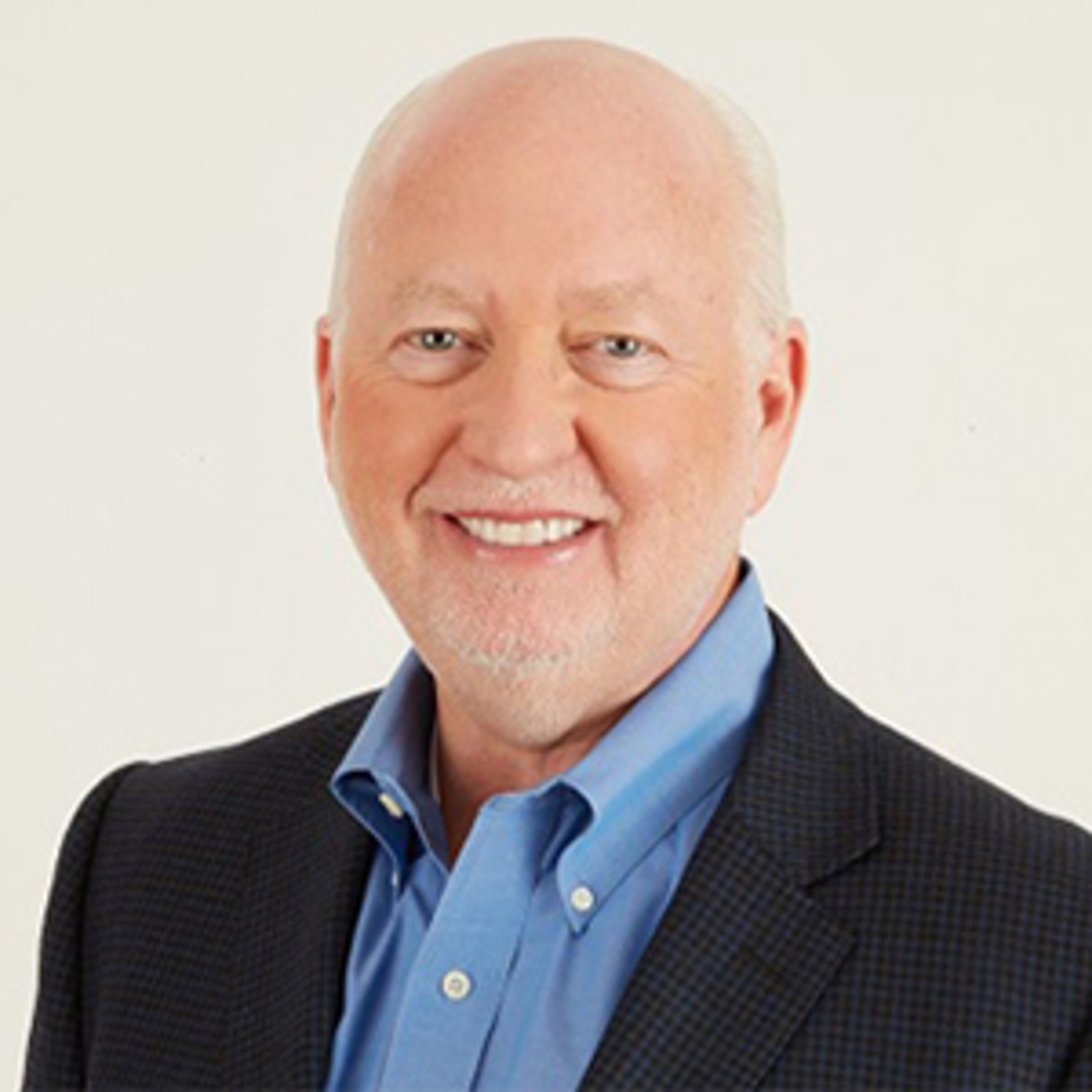Stretching Summer: The Art of Savoring the Season
How to make summer feel longer by embracing novelty and meaningful moments. Science explains why time flies — and how to slow it down.
Aug 10, 2025
Written by our Founder and Chairman, the Celebrations Pulse letters aim to engage with our community. By welcoming your ideas and sharing your stories, we want to help you strengthen your relationships with the most important people in your life.
One of my favorite songs this time of year is George Gershwin’s “Summertime.” It starts with this dreamy line: “Summertime, and the livin’ is easy.” It’s a song that makes you breathe a little slower and appreciate the simple pleasures of the season.
But here’s the odd thing: While the languid melody makes it feel like time has stopped — like summer might stretch on forever — we all know the truth: Summer ends too soon. One minute you’re firing up the grill on Memorial Day, and the next, you’re shopping for school supplies. It always seems to move faster than we want it to.
When I hear “Summertime,” I don’t just think about lazy afternoons and warm evenings. I also think about how precious the seasonal rituals of summer are. Whether it’s a quiet walk to watch the sun set, a shared meal outside, or just a quick hello to a neighbor, those little summer moments are worth savoring.
It gets me wondering: How can we slow time down? And why can’t we preserve this feeling all year-round?

Why time feels so slippery
You’ve probably heard the saying, “Time flies when you’re having fun.” It turns out, there’s some truth behind it. Science tells us that the way we experience time, what psychologists call “subjective time,” is deeply affected by how we spend it.
Objectively, of course, a minute is always a minute. But subjectively, what’s happening in our “mind time” is far more flexible. Decades ago, psychologist Robert Ornstein conducted a series of experiments showing that when people are exposed to more sensory information, more complexity, and more variety, they perceive time as longer.
For instance, participants listening to tapes with more frequent and varied sounds believed more time had passed than those who listened to simpler recordings, even though both tapes were exactly the same length.
In other words, the more newness and richness we experience, the more “frames” our mind captures, and the fuller our memory log becomes. This explains why childhood summers, filled with firsts — first bike ride, first vacation, first Little League game, first fireworks — seem to stretch on forever. Our brains were constantly being jump-started by newness.
The wrinkle of age
One of the things I love about writing this letter is that I get to learn alongside you. And one question I’ve heard (and asked) many times is: Why does time seem to speed up as we age?
According to researcher Adrian Bejan, our brains slow down as we grow older. The internal signals have to travel longer paths through more complex networks, which means we take in fewer mental “snapshots” per second. That drop in processing speed makes time feel like it’s racing by. It’s like the “film reel” of our memories begins to thin out with fewer frames and fewer standout moments.
Summers feel shorter. Years go by in a blink.
And our modern routines don’t do us any favors. Think about how much time we spend scrolling endless streams of similar images and stories that don’t stick. Because our brains don’t log those moments as meaningful, they vanish from memory.
No wonder some weekends feel like they disappear into thin air!

Preserving the summer spirit
Eventually, the calendar will turn. The long days will shorten. But that doesn’t mean the spirit of summer has to end.
Ultimately, what makes summer feel so precious isn’t just the warm weather or hours of sunshine but the way it invites us to experience life in different ways. We give ourselves permission to slow down and to connect more deeply.
So maybe the real challenge isn’t how to hold onto summer but rather how to carry its spirit into the rest of the year.
As August rolls on, I hope you’ll pause and ask yourself: What makes summer feel like summer? And how might you bring that summer feeling into September … and beyond?
All the best,
Jim













